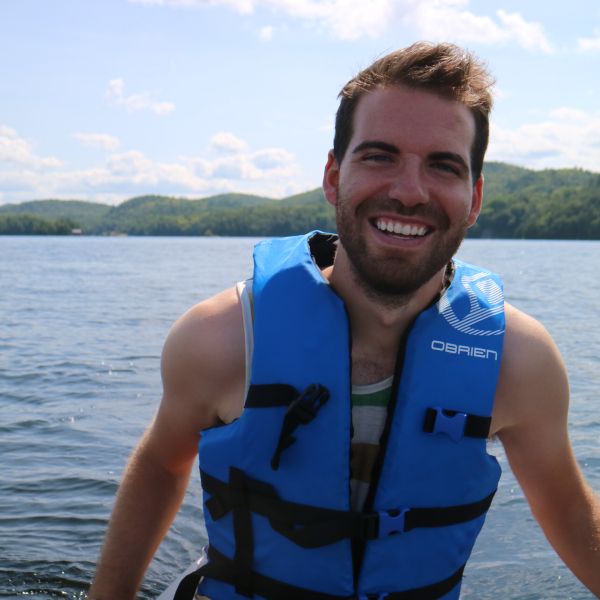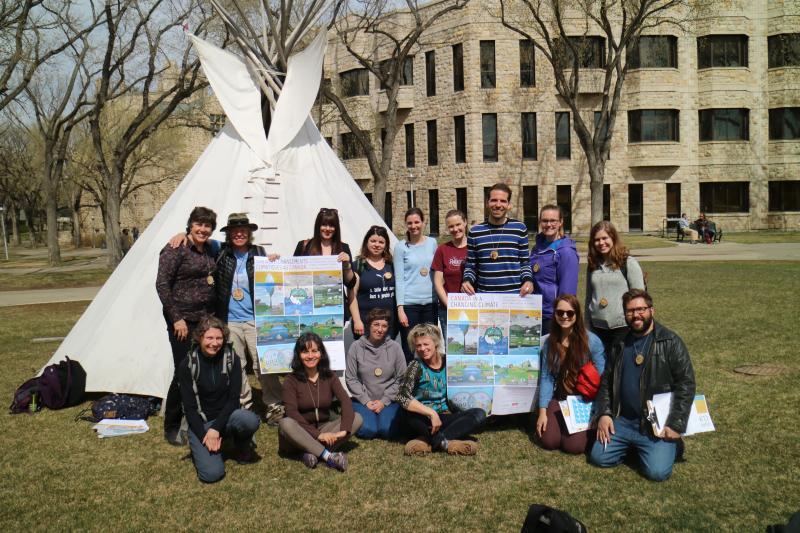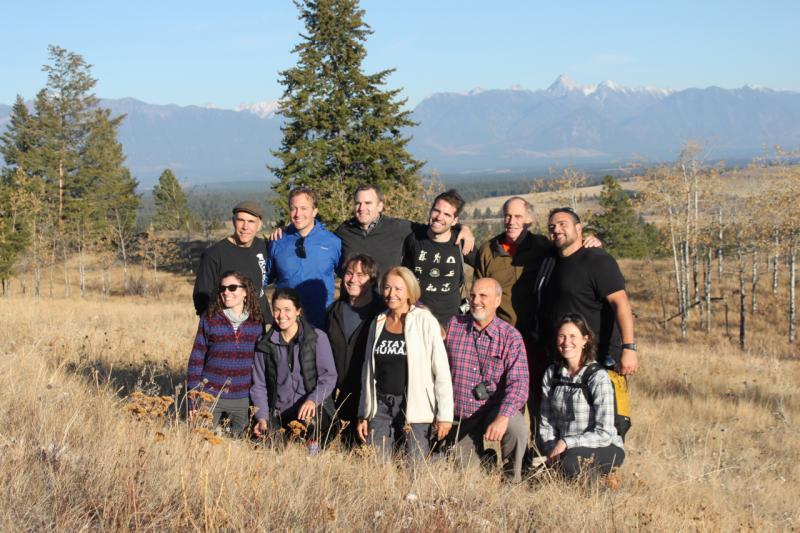Image

-
Adam Young
Chair, Canadian Network for Environmental Education & Communication - EECOM
- 30 Under 30
- 2019
Ottawa, ON, Canada SEE OTHER BIOS HERE
Age: 29
Adam leads a national environmental education network in Canada, connecting people and creating curriculum on climate change and sustainability.
Tell us about yourself!
I currently am the Chair of the Canadian Network for Environmental Education & Communication (EECOM), Canada’s national network of environmental learning. As a Board Director for the last three years, I have helped with our annual conferences, awards, communications, and strategic planning. One of the most exciting initiatives I am currently involved in is discussions on integrating Reconciliation within our organization, as well as the broader EE community in Canada.
In my day job I am a Youth Program Specialist with Scouts Canada. I started my career there leading STEM and environmental programming, and now head a program promoting the Sustainable Development Goals across our membership. I work alongside many volunteers, environmental non-profits, and other partners who are helping us explore how to fight climate change, reduce inequality, and eradicate poverty through domestic and international Scouting. Before joining the Scouts, I worked at the Canada Science & Technology Museum and created a series of lesson plans on climate change adaptation and mitigation, as well as some energy literacy projects.
I have witnessed a lot of great programming, curriculum, and organizations taking up environmental education within the K-12 and nonformal education systems. I worked across Canada looking at sustainability practices in schools during my Master’s research at the Sustainability & Education Policy Network in Saskatchewan. I also have taught environmental education in elementary classrooms and for university student teachers, and led groups of international students through Canada’s Rocky Mountains the last ten years.

I grew up visiting many of the beautiful natural areas of the Canadian Prairies with my dad, who was a watershed ecologist. I was raised to see the biodiversity all around us, and to understand the different viewpoints and attitudes toward the environment that different people hold. In grade school, my city brought in a residential recycling program. With the help of a classmate in Grade 7 we brought the program to our elementary school, and got the whole school excited about recycling. Fifteen years later, a lot has changed since.
When I went to university to become a teacher, I began to realize that being a good teacher requires advocacy and passion for great causes. In an education philosophy class, I read some critical environmental educati
on articles that helped me understand how important environmental literacy is. From there I started taking an interest in best practices and pedagogy for the planet, and realized the role I would have, no matter what subject I taught.
What advice would you give to the next generation of leaders that are looking to bring about positive change in their communities through EE?
We are a generation that has access to information readily available, so prioritize creating personal connections over creating products. There are so many guidebooks and plans for how to save the planet, but not enough people actually carrying out environmental education.
In any project, start by asking community members what they need. Look to scale up exemplary environmental education initiatives from close to home or far away. Find and hold close networks, and make friends and partnerships that are mutually supportive. Our aim should be broadening the field, and that requires looking for consensus with folks who may not always be in our circles. We need them now more than ever.

What keeps you motivated, inspired, or hopeful for the future?
I am lucky to spend a lot of time witnessing youth doing incredible projects for the environment. It gives me hope whenever I walk into a school and see a group of students passionate about environmental learning, taking on a youth-led and creative way to make a difference in the world. I can say the same thing watching Scouting youth make an incredible difference in their home community.
It is humbling to know you’re not alone in your work, and that people are really starting to ‘get it’. It comes from not just my own network and friends at EECOM, but other people that join us at our annual conference for the first time, and feel like they have found a home among friends. I always love watching that happen. I also know that this work can be challenging and depressing at times. The way I get through it is by holding my friends and colleagues close, and embracing all four seasons with wonder.
What pro-environmental behavior do you think would make a big impact if everyone in the world started doing it?
I’d like to see everyone in the world take more responsibility for their own lifestyle choices that are high-emitting and put some money into groups that are making a difference. I’m as a guilty as many in my generation for flying, but each time I do so I know I can make a difference to offset my travel.
Tree planting works to some degree, but one of the greatest differences I see is through donating money to environmental education charities doing on-the-ground training and support for youth and the public. If your finances don’t allow you to donate financially, give your vote to a political party that supports climate action and will fund projects for a greener economy and society. Or, take a bit of your time to do something bigger than your own circle. It’s amazing how good it feels to be making a difference, however much you can.